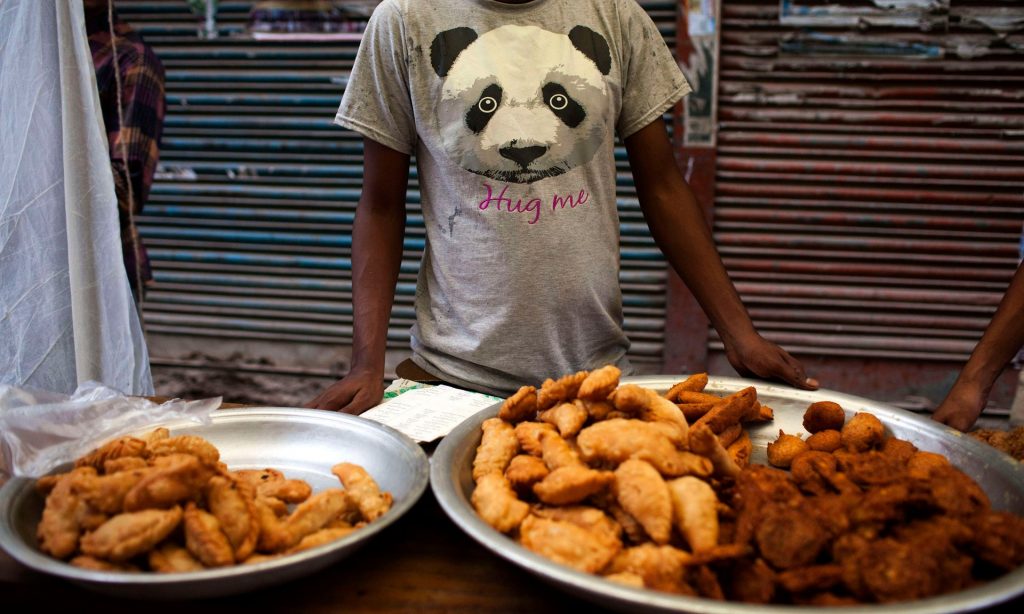
Photograph: Mohd Rasfan/AFP/Getty Images
Millions of people who struggled to pay for traditional staple foods like maize, rice and wheat when global food prices dramatically rose between 2007-2011 have switched to western-style processed “junk-food” alternatives that are high in sugars, fats and salt, a four-year study across 10 countries has found.
The sudden rise and volatility in the price of basic foods, which was linked to trading in the global commodity markets and the rundown of food stocks in many countries, triggered a major cultural shift because it forced more people to seek cash incomes and enter the work market, said the authors.
But although people in countries including Kenya, Bolivia, Indonesia, Pakistan, Vietnam and Zambia worked much harder to earn enough to feed their families, they had much less family time.
The result, said the report by the Institute for Development Studies and Oxfam, Precarious Lives: Food, Work and Care After the Global Food Crisis (pdf), was that they started buying convenience and fast foods as they moved around for work.
Women started doing more hard, insecure, paid work and felt pressed to speed up the work of feeding the family by turning to ready-made and fast foods. “Children and young people also became early adopters of all manner of processed foods – cheap, tasty, fun, trendy and typically habit-forming,” said the authors.
“The mobile eating phenomenon appeared most common among men in growing economies, rural and urban – some because they had no family to go to for meals, others because they could eat better out than at home. Others still found community and camaraderie in the public restaurants and snack bars that formed part of their working day.
“People were visibly working harder to stay fed … [But] even by working much harder, and even when wages started to rise, people could not feed their families well.
“Much of what people did at the time of the price spikes was familiar crisis-coping behaviour: substituting less costly items, cutting out more expensive items and replacing them with filling foods, sacrificing safety, taste and familiarity for volume and price.”
The authors asked why so many people moved towards more processed, packaged and purchased foods, and concluded it was for a mix of practical and psychological reasons, including the accessibility and addictive nature of junk food, with its high sugar, salt and fat content.
As people worked harder and longer, and migrated to towns, other regions or countries to find work, more turned to heavily marketed convenience food, particularly unhealthy processed items with high levels of fat, sugar and salt – a more “westernised” diet.

Photograph: K M Asad/LightRocket via Getty Images
The researchers, who followed individuals and families for four years, observed rapid changes in eating habits and – together with increased urbanisation – a transition to more hazardous, undignified and insecure jobs as people toiled to put food on the table.
International prices reduced in 2012, but the impacts of the cultural shift triggered by the price rises are still being observed, explained the authors.
“Our research found that in addition to cutting down on pricey items, replacing nutritionally rich food with filling staples and borrowing cash to buy food, people in all research sites are turning to unhealthy fast food,” said lead researcher and IDS research fellow Naomi Hossain.
“Governments in developing countries need to pay urgent attention to these changes, and implement appropriate food safety and advertising standards regulation, in order to guard against a global epidemic of unbalanced nutrition and obesity.”
Oxfam programme researcher John Magrath said: “This shows that the food price crisis has pushed many people – especially women – further into hard, insecure work, with uncertain hours and poor, unreliable wages. They are also spending less time with their families, such as preparing nutritious food and eating together.”

